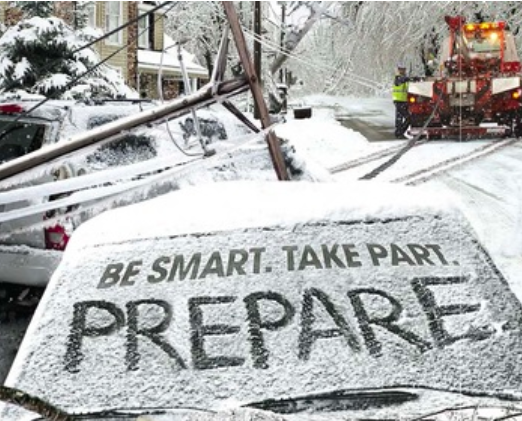Being #WinterReady means understanding winter risks you face and taking steps now to prepare. The Mashpee Wampanoag Tribe Emergency Management Department in collaboration with ready.gov shares some winter preparedness tips and safety information.
Sixty-three percent of temperature-related deaths are attributable to cold exposure.
Home heating is the second leading cause of home fires, and winter is when most home fires happen.
Travel during the winter has unique risks, especially if you travel by car.
Please click this link for more detailed tips and information! https://www.ready.gov/winter-ready
To learn more about New England Winter Storm Watches/Warnings, What to do before a Winter Storm, During a Winter Storm and After a Winter Storm Click Here!
For additional winter preparedness guidance and information, please contact MWT Emergency Management at; nelson.andrewsjr@mwtribe-nsn.gov and Allyssa.hathaway@mwtribe-nsn.gov.
Preventing House Heating Fires
Keep anything that can burn at least three feet from all heat sources including fireplaces, wood stoves, radiators, portable heaters or candles.
Always plug space heaters directly into an outlet, and make sure its cord isn’t damaged or frayed.
Never use an oven to heat your home.
Maintain heating equipment and chimneys by having them cleaned and inspected each year by a professional.
Visit the U.S. Fire Administration Home Fires page to learn about how to prepare for and prevent home fires including tips for individuals with disabilities and older adults.
Preparing for Power Outages
Keep freezers and refrigerators closed. Throw away any food that has been exposed to temperatures 40 degrees or higher for two hours or more, or that has an unusual odor, color or texture.
If you use a generator, ONLY use it outdoors and away from windows.
Do not use a gas stove or oven to heat your home.
Disconnect appliances and electronics to avoid damage from electrical surges.
Have alternate plans for refrigerating medicines or using power-dependent medical devices.
Go to a community location with power if cold is extreme and you can’t heat your home.
Stay Safe During Winter Travel
From blizzards, to avalanches, to ice storms, be aware of the winter risks in places you visit. Check the local weather forecasts and warnings before heading out. Visit National Weather Service for up to date forecasts and download the FEMA App for alerts in up to five locations.
Check your local weather and traffic reports before heading out.
If your roads are not in good shape, consider postponing non-essential travel until the roads are cleared. If you do have to go out, make sure you are prepared in case you become delayed while traveling.
Tell others your route and anticipated arrival time.
Want more tips on travel safety? Watch this PSA, made in partnership with FEMA and the TSA, for additional tips on travel safety.



